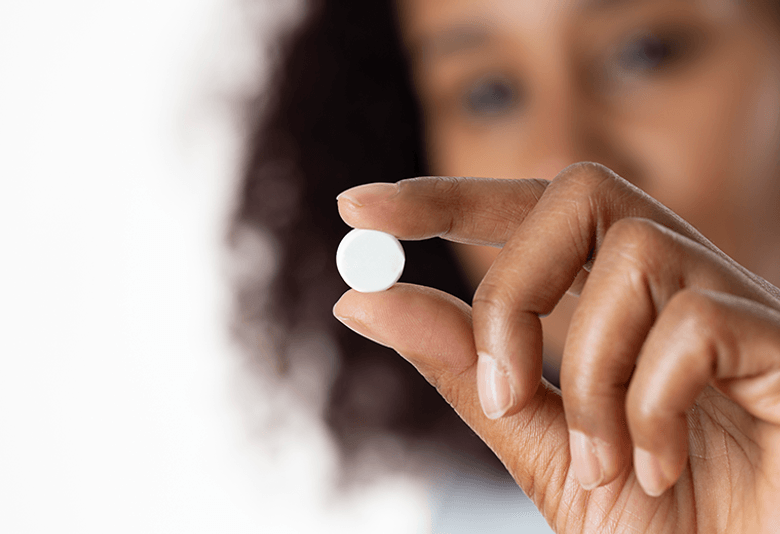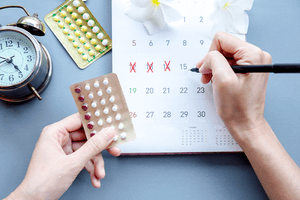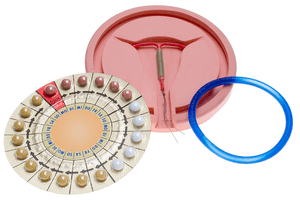The emergency contraceptive pill (ECP); our knight in shining armour, unfortunately often comes with many misconceptions. It is a method that can be used to prevent pregnency after having unprotected sex however it is often painted as rigid medication, with only a sliver of time in which it can be used, but this is often not the case. The ECP is quite a dynamic contraceptive option, and in this blog, we will run through some of the myths associated with it, to set the record straight.
Myth 1: It can only be used the morning after
Fact 1: The naming of the ECP as the morning after pill in many spaces is part of the reason why this myth exists. In many cases, the ECP can be used up to 5 days after you have had unprotected sex. Brands such as PostPil note that use can occur up to 120 hours after unprotected sex is, and the duration of time from when you have had unprotected sex does not impact the efficacy of it as long as it falls within the first 5 days.
Myth 2: You Always Need A Prescription To Get An ECP
Fact 2: In many countries, you don’t need a prescription to access the ECP. There are variations in legislation around the matter, but for the majority of countries, specifically in sub-saharan Africa, the ECP is available without needing a prescription as it is a contraceptive option, which in all countries is legal.
Myth 3: You Can Only Use ECP Twice in Your Lifetime
Fact 3: You can use the ECP more than two times in your lifetime. Many hold the belief that taking the pill more than twice will adversely affect your fertility and many practitioners wrongfully spread this message. However, numerous studies have shown that taking the ECP more than twice in no way impacts your fertility. It is important to know that ECP should not be used as a long term contraceptive and it is advised to seek out a long term contraceptive option after using the pill.
Myth 4: The Most Expensive Pill is The Most Effective
Fact 4: The most expensive is not always the most effective. Perhaps it is the inherent belief in our societies that what costs more, works more effectively. But when it comes to the ECP, this is definitely not true. Governments and healthcare organizations subsidize many ECPs, which in turn will affect their overall cost. Moreover ECPs have been around for a long time, which means there are many affordable options available.
Myth 5: The ECP Puts You at Greater Risk of Developing an Ectopic Pregnancy
Fact 5: An ectopic pregnancy occurs when a fertilised egg implants itself outside the uterus. There is no evidence that shows taking the ECP will increase the likelihood of developing an ectopic pregnancy. A study conducted revealed that even under the most conservative circumstances, there was absolutely no correlation between taking the ECP and having an ectopic pregnancy.
Myth 6: The ECP Protects You For Your Entire Cycle
Fact 6: The ECP does not protect you during your whole cycle, it instead delays ovulation, inhibits fertilisation or stops a fertilised egg from implanting into the uterus lining, depending on which part of your menstrual cycle the pill is administered. As such, you cannot use the ECP as a long term contraceptive method. It is wise to learn more about other contraceptive options.
Myth 7: The ECP Always Comes in Packets of Two
Fact 7: There are many variants of the ECP that come in single pill form such as the PostPil. Some options come with two pills that need to be taken at separate times. But human error can often lower their efficacy. Many options come in a one pill pack and are just as effective as the two pill option.
Do you have something to share? Leave your comments below, contact us on our social media platforms: Facebook, Instagram, Twitter, YouTube and TikTok or send us an email to info@findmymethod.org. For more information on contraception, visit findmymethod.org
About the author: Marie-Simone Kadurira is a Reproductive Health consultant in Southern Africa. She is also the founder of Vasikana Vedu. It is a not for profit organisation which combats period poverty in the region.



